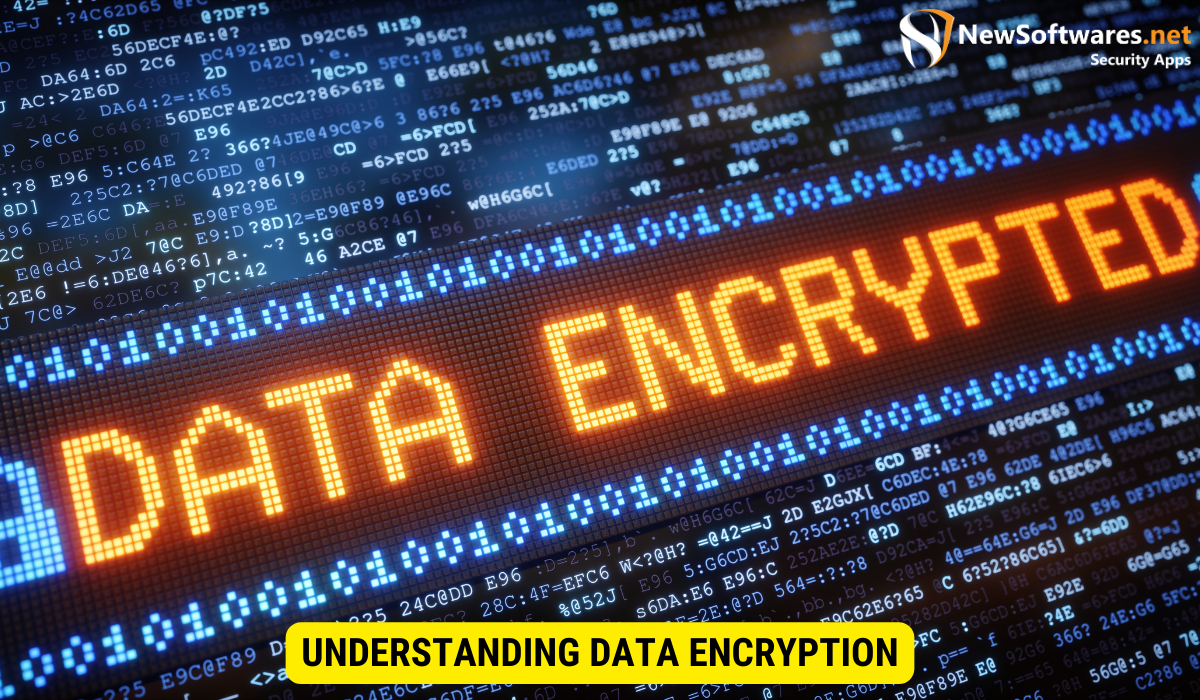Data encryption in Google Cloud Platform (GCP) is vital for safeguarding sensitive information. GCP employs a multi-layered approach, supporting symmetric and asymmetric key encryption, and offers key management services like Cloud KMS for added control and security.
Data encryption is vital to cloud computing, especially when shielding sensitive data from unauthorized access and ensuring data integrity. Together, we will explore data encryption in Google Cloud Platform (GCP) and understand the different encryption techniques and mechanisms employed by GCP to provide a secure environment for storing and processing data.
Understanding Data Encryption

Data encryption converts understandable data into an unreadable form, rendering it useless to unauthorized individuals or entities. Encryption utilizes cryptographic algorithms and keys to encode the data, making it secure and confidential. The encrypted data can only be decrypted by using the matching decryption key, ensuring that only authorized users can access the information.
The Basics of Data Encryption
At a fundamental level, data encryption includes two primary components: the encryption algorithm and the encryption key. The encryption algorithm is the mathematical function or rules to encrypt the data. This algorithm converts the plaintext data into ciphertext, which is the encrypted form of the data. The encryption key is an exclusive piece of information used to encrypt and decrypt the data.
There are two types of data encryption – symmetric key encryption and asymmetric key encryption. Symmetric key encryption, also recognized as secret key encryption, uses a similar key to encrypt and decrypt the data. On the other hand, asymmetric key encryption uses a couple of keys – a public key for encryption and a private key for decryption.
Importance of Data Encryption in Cloud Computing
Cloud computing offers businesses numerous benefits, including scalability, flexibility, and cost-efficiency. However, with the outsourcing of data storage and processing, the security of sensitive information becomes a significant concern. Data encryption plays a crucial role in mitigating security risks and ensuring the confidentiality and integrity of data in cloud environments like GCP.
By encrypting data, businesses can protect their sensitive information from unauthorized access, whether from external threats or insider attacks. Encryption provides an added layer of safety and ensures the stolen data remains inaccessible even if data breaches occur without the proper decryption key.
Overview of Google Cloud Platform (GCP)
Google Cloud Platform (GCP) is a comprehensive suite of cloud computing services provided by Google. It offers a wide range of solution for business, including infrastructure as a service (IaaS), platform as a service, and software as a service (SaaS). GCP’s robust infrastructure and advanced security features make it an attractive choice for organizations looking to leverage the power of the cloud.
Key Features of GCP
GCP provides several key features that contribute to its popularity among businesses:
- Scalability: GCP allows businesses to scale their resources up or down based on requirements, ensuring optimal performance and cost-efficiency.
- Reliability: GCP boasts a highly reliable infrastructure, reducing the danger of downtime and ensuring uninterrupted service availability.
- Cost-Effectiveness: With GCP’s pay-as-you-go pricing model, businesses only pay for the resources they use, eliminating the need for upfront investments in hardware and infrastructure.
- Flexibility: GCP supports various programming languages, frameworks, and tools, enabling developers to choose their preferred technologies.
- Big Data and Machine Learning Capabilities: GCP offers powerful tools and services for handling large datasets and implementing machine learning models.
Security Measures in GCP
GCP places a strong emphasis on security and offers a range of features & tools to protect customer data. These security measures include:
- Identity and Access Management (IAM): GCP’s IAM system enables businesses to manage user access and permissions, making sure that only authorized individuals can access critical resources.
- Firewalls and Network Security: GCP includes network security features, such as VPCs (Virtual Private Clouds) and firewalls, to control inbound and outbound traffic and protect against unauthorized access.
- Security Key Enforcement: GCP supports using security keys, such as hardware tokens or mobile devices, to enhance authentication and protect against unauthorized access to user accounts.
- Threat Detection and Incident Response: GCP provides tools and services that detect and mitigate potential threats and comprehensive incident response capabilities.
- Compliance and Certification: GCP adheres to numerous industry standards and regulatory requirements, ensuring customer data is stored and processed securely.
GCP’s Approach to Data Encryption
GCP employs a multi-layered approach to data encryption, utilizing different encryption techniques and mechanisms to protect data at rest and in transit.
Encryption at Rest in GCP
When data is at rest, stored in storage systems like GCP’s Cloud Storage or databases like Cloud SQL, GCP provides multiple options for encrypting the data. GCP’s default encryption mechanism automatically encrypts data using server-side encryption with Google-managed keys.
GCP can bring your keys (BYOK) using the Google Cloud Key Management Service (KMS) for businesses with additional security requirements or compliance needs. This gives customers complete control over the encryption keys used to encrypt and decrypt their data.
Encryption in Transit in GCP
GCP ensures secure data transmission between clients and its services by utilizing encryption in transit. GCP’s services support encrypted connections using industry-standard protocols such as Transport Layer Security (TLS) and Secure Sockets Layer (SSL).
GCP also provides the option to use customer-managed SSL/TLS certificates, giving customers greater control over the encryption process and allowing them to use their own certificates for added security.
Types of Encryption in GCP
GCP offers different types of encryption to meet the diverse needs of businesses:
Symmetric Key Encryption in GCP
Symmetric key encryption uses a similar key for encryption and decryption. GCP supports symmetric key encryption for encrypting data at rest and in transit.
GCP’s default encryption at rest uses AES-256 (Advanced Encryption Standard 256-bit) symmetric encryption, ensuring strong and efficient data protection. Additionally, GCP supports symmetric key encryption for encrypting data in transit using TLS or SSL protocols.
Asymmetric Key Encryption in GCP
Asymmetric key encryption, also known as public-key encryption, is a more complex encryption technique that involves using key pairs – a public key and a private key. The public key is encrypted, while the private key is kept secret and used for decryption.
GCP supports asymmetric key encryption through various services like Google Cloud KMS. With Cloud KMS, customers can generate and manage their key pairs and use them to encrypt sensitive data, providing an additional level of security.
Managing Encryption Keys in GCP

In GCP, managing encryption keys is critical to ensuring data security. GCP provides various options for managing encryption keys:
Google Cloud Key Management Service
GCP’s Cloud KMS is a key management service that allows customers to generate, use, rotate, and manage encryption keys. With Cloud KMS, businesses can fully control their encryption keys and implement advanced key management practices.
Cloud KMS integrates seamlessly with other GCP services, making it easy to encrypt data at rest and in transit using customer– or Google-managed keys. The comprehensive key management features of Cloud KMS ensure that encryption keys are appropriately protected and accessible only by authorized individuals.
Customer-Supplied Encryption Keys
GCP also enables customers to bring their own encryption keys (BYOK) to strengthen their data security further. By using customer-supplied encryption keys, businesses retain full control over the cryptographic keys, ensuring that GCP cannot access or decrypt their data.
This option allows businesses to meet various compliance and regulatory requirements by keeping the encryption keys in their secure infrastructure.
Key Takeaways
- Data encryption is crucial to cloud computing, providing security and confidentiality for sensitive information.
- Google Cloud Platform (GCP) offers a comprehensive suite of cloud computing services with advanced security features.
- GCP employs a multi-layered approach to data encryption, ensuring data security at rest and in transit.
- GCP supports symmetric key encryption and asymmetric key encryption for different use cases.
- GCP provides key management services like Cloud KMS and allows the use of customer-supplied encryption keys for added control and security.
FAQs
Q: Does GCP encrypt data by default?
A: GCP encrypts data by default using server-side encryption with Google-managed keys, providing an extra layer of security for stored data.
Q: Can I use my own encryption keys with GCP?
A: GCP provides the option to bring your own encryption keys (BYOK) using the Google Cloud Key Management Service (KMS), giving you full control over your encryption keys.
Q: What happens if I lose my encryption keys?
A: If you lose your encryption keys, you may permanently lose access to the encrypted data. Implementing proper key management practices and considering backup and recovery strategies is crucial.
Q: Which encryption algorithm does GCP use?
A: GCP uses AES-256 (Advanced Encryption Standard 256-bit), a widely accepted and highly secure symmetric encryption algorithm, for encrypting data at rest.
Q: Are Google Cloud Platform services compliant with industry standards?
A: GCP adheres to various industry standards and compliance requirements, providing a secure and compliant cloud environment for businesses.
Conclusion
Data encryption is a serious aspect of cloud computing, and Google Cloud Platform (GCP) offers robust encryption capabilities to protect sensitive data. With features like encryption at rest & in transit, symmetric and asymmetric key encryption, and key management services like Cloud KMS, organizations can ensure that their data is safe and accessible only by authorized individuals. By leveraging GCP’s advanced security measures, businesses can confidently utilize the cloud for their storage and processing needs.
